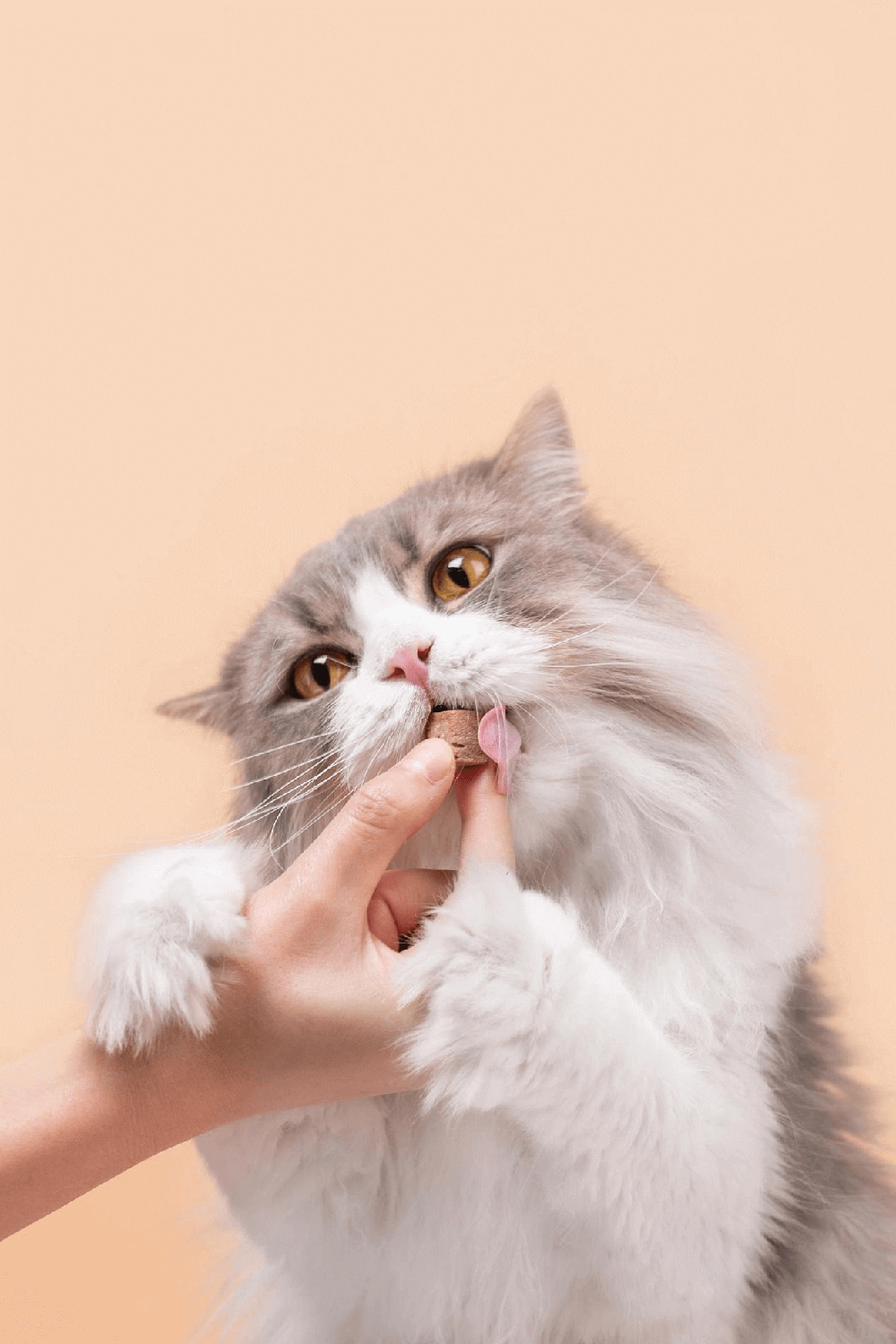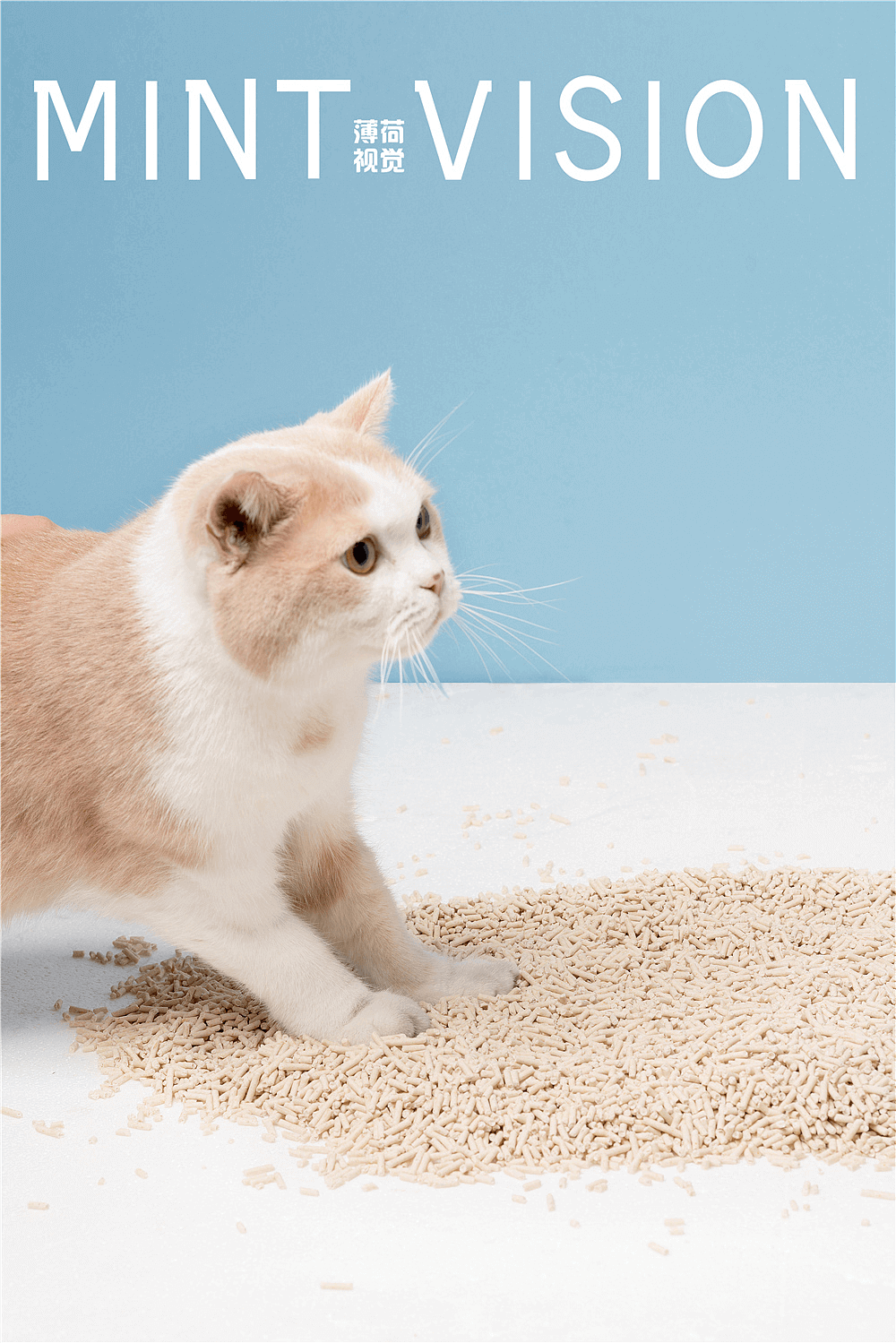The stomach and intestines of cats are very fragile, and soft stools may occur if you are not careful. Soft stools in cats may be caused by a variety of reasons, including indigestion, food intolerance, irregular diet, inappropriate cat food, stress response, parasites, gastrointestinal problems or diseases, etc. So what should I do if my cat has soft stools? What is the difference between soft stools and diarrhea in cats?

What causes soft stools in cats?
Dietary problems:
1. Indigestible food: If cats eat indigestible food, such as high-fat food or human food, it may cause gastrointestinal discomfort.
2. Food intolerance: Cats are prone to intolerance to certain food ingredients (such as milk, lactose), and accidentally eating them will cause gastrointestinal discomfort
3.Spoiled food: Eating spoiled or expired cat food, canned cat food or cat snacks that have been stored outside for a long time, the bacteria produced by food spoilage will affect the cat's stomach and intestines
Parasitic infection:
Common parasites: Parasitic infections such as coccidia, hookworms and trichomonas can cause soft stools or diarrhea in cats. Parasites can damage the cat's intestinal mucosa, causing indigestion.
Gastroenteritis:
Bacterial or viral infection: Infectious gastroenteritis is usually caused by bacteria or viruses, such as E. coli, Salmonella, coronavirus, etc. Infection can cause inflammation of the cat's stomach and intestines, causing soft stools or diarrhea.

Environmental changes:
Stress from a new environment: Cats will feel uneasy and nervous when they move to a new home or change their environment. This stress response will affect digestion and cause soft stools.
Food allergies:
Allergies to protein or other ingredients: Some cats are allergic to specific proteins (such as chicken, fish) or other ingredients (such as dyes, preservatives), which may cause gastrointestinal discomfort and soft stools.
Indigestion:
Eating too much or too mixed: Excessive or mixed food intake will burden the cat's stomach and intestines, causing indigestion and soft stools.
Gastrointestinal absorption problems:
Weak gastrointestinal function: Some cats have weak gastrointestinal absorption function due to congenital or disease-induced diseases. It is crucial to choose food that is easy to digest and absorb. Some cats may have soft stools due to weak gastrointestinal function or indigestion. When choosing cat food or cat snacks, pay attention to the ingredients. Try to choose pure meat with a softer texture for cat snacks.
Unhygienic diet:
Food contaminated by bacteria: If cats eat food contaminated by bacteria, such as moldy cat food or contaminated water, it is easy to cause gastrointestinal infection and lead to soft stools.
Sudden change of food:
Inadaptability to new cat food: Sudden change of food may cause gastrointestinal discomfort in cats. It is recommended to gradually transition to new cat food.
The difference between soft stool and diarrhea in cats

Different stool shapes:
Soft stool: between normal stool and diarrhea, although formed but soft, may not be able to be caught.
Diarrhea: completely unformed, in a paste or watery state, and cannot be picked up.
Different causes:
Soft stool: usually caused by indigestion or mild food intolerance, may be accompanied by symptoms such as loss of appetite and normal mental state.
Diarrhea: Usually caused by serious diseases (such as gastroenteritis, parasitic infection), may be accompanied by vomiting, weight loss, high fever, lethargy and other symptoms.
Different stool color and smell:
Soft stool: The color and smell are usually similar to normal stool.
Diarrhea: The color and smell are significantly different from soft stool, and may be brown, mucus, and accompanied by a special odor.
How to deal with soft stool in cats
Observe the soft stool of cats: If the soft stool is mild and the cat is in good spirits and has a normal appetite, you can observe it for a few days. If there is no improvement or other symptoms appear, you should see a doctor as soon as possible.
Adjust diet: Avoid feeding cats stale cat food that has been left for more than 12 hours, keep the cat's diet regular, and feed it at regular times and quantities. Liquid cat snacks with high water content, coupled with excessive drinking of cats, may also cause loose stools. Pay attention to whether the cat has other physical discomforts
Replenish electrolytes and water: Soft stools may cause cats to lose water and electrolytes. You can appropriately replenish cats with rehydration salts or electrolyte water. If the cat has a poor appetite, you can feed some liquid cat snacks to improve appetite and replenish water
Take antidiarrheal drugs and probiotics: If the soft stool is serious, you can consider giving the cat antidiarrheal drugs such as montmorillonite powder, or probiotics and prebiotics to regulate intestinal flora.
Change cat food: If soft stools are caused by changing food, you should gradually transition to new cat food. It is recommended to use the seven-day food change method.
Deworming: Regularly perform internal and external deworming, keep the cat hygienic, and regularly clean the food bowl and drinking utensils.
Keep the environment clean: Prevent cats from contacting unclean water and food, and keep the living environment clean and hygienic.
Medical treatment: If the soft stool persists or is accompanied by other symptoms such as vomiting, loss of appetite, etc., the cat should be taken to the veterinary hospital for treatment in time.
The effect of taking probiotics on soft stools in cats
If the cat's soft stool is not serious, you can try feeding a pack of probiotics every day and observe the effect for several days. When feeding, you can mix the probiotics into the cat's favorite cat food or cat snacks, or feed it after brewing with water. It is best to give it after the cat has finished eating to improve the effect. Probiotics can help regulate the cat's intestinal flora, promote digestion and absorption, and help alleviate the problem of soft stools

Post time: Jul-09-2024
